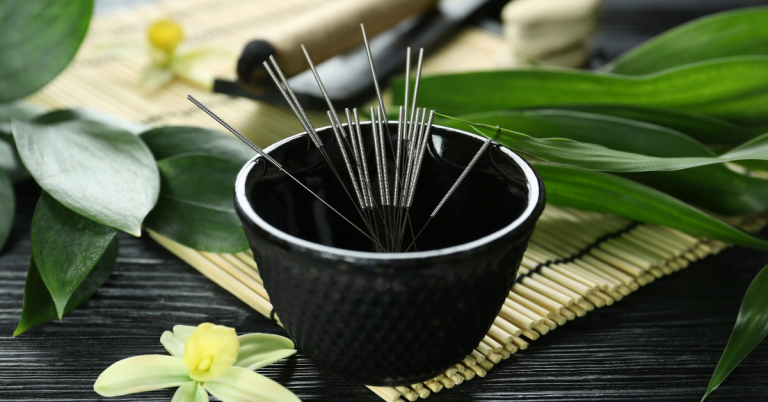How to Accelerate Health and Injury Recovery

Recovery from an illness or injury is a slow and hard process, which needs a lot of patience and dedication. Whether you’re dealing with a sports injury, surgical procedure, or even a dog bite, the road to recovery includes more than just rest. You need to include different activities and make lifestyle changes that will accelerate healing and restore your health. In this article, we will talk about this topic and give you a few tips to help speed up the recovery process and return to your normal lifestyle as soon as possible.
Get and Follow a Recovery Plan
One of the first and most important steps to accelerate health and injury recovery is to get and follow a recovery plan. This plan should be created by a healthcare professional and it should take care of all aspects of your recovery. It should include rest, physical therapy, medication management, and a diet plan. For example, if you’re recovering from a dog bite, your plan should include wound care instructions, some antibiotics that will prevent infection, and a course of vaccinations. It’s important to follow your plan closely, as the aftermath of a dog bite can be both physically and emotionally traumatic, as experts at Collins Law state.
Every experienced lawyer puts accent on following a recovery plan, as it can also be important evidence if you decide to take legal action. Being careful and paying attention to your injuries will prevent further complications in your legal case and get you a smooth recovery. You should also consider the psychological aspects of healing. Every injury and illness brings a certain dose of emotional distress, and that’s why mental health support is a must – counseling or therapy can be both very beneficial.
Have a Balanced Diet
We already mentioned that every good recovery plan will include a diet plan as well. A good and balanced diet will give your body all the nutrients that are needed for tissue repair, immune support, and healing in general. You must eat a lot of foods rich in nutrients – fruits, vegetables, lean proteins, whole grains, and healthy fats. For example, foods that have high doses of proteins, like chicken, fish, and legumes are the best methods for repairing damaged tissues and muscles.
If your body goes through serious injuries or trauma, it will need additional nutrients to fight stress and inflammation. For example, omega-3 fatty acids that can be found in fish and flaxseeds are well known for their anti-inflammatory characteristics and can help reduce swelling and pain. Furthermore, vitamin C which can be found in citrus fruits and leafy greens is known for producing collagen, and collagen is known for healing wounds. Don’t forget to stay hydrated as well – dehydration can slow down the healing process and increase the risk of complications.
Be Active
Of course, you need to rest right after the injury, but as time goes by, it’s important to include physical activity in your daily routine. Physical activity helps improve circulation, reduce stiffness, and give muscles strength – these all are important for successful recovery. However, always follow your doctor’s recommendations about what type and intensity of physical activity is good for your condition.
For example, if you’re recovering from a sports injury or surgery, you should probably go with slight exercises like walking, swimming, or gentle stretching. On the other hand, if you experience some traumatic situation, your physical activity should focus on gradually increasing movements as the wound heals. Always listen to your body and remember not to push yourself too hard, because this will only lead to further injury.
Rest and Sleep Well
Rest and sleep are important parts of the recovery process. During sleep, your body goes through important repair processes, including the release of growth hormones that help tissue heal and strengthen the immune system. That’s why you need to get enough quality sleep. Create yourself a regular sleep schedule – go to bed and wake up at the same time each day. Create a bedtime routine – read, listen to calming music or practice meditation. Avoid caffeine and heavy meals before bedtime, as they can keep you awake. If you have any pain or discomfort from your injury, use supportive pillows or cushions that will help you find a comfortable sleeping position.

Stress Less
Stress can have a negative impact on everything, including your recovery process. It affects your immune system and health, so you must find a way to manage and reduce stress if you want to accelerate recovery. You can try different techniques – deep breathing exercises, meditation, mindfulness… These can calm your mind and reduce anxiety. Also, we would recommend engaging in hobbies or activities you enjoy to take your mind off the stress of recovery.
However, if you’re dealing with deeper emotional trauma, it’s important to seek professional help from a therapist and counselor. They can help you understand and process your emotions, learn how to manage stress, and create a positive mindset using coping strategies. Social support from family and friends is equally important for reducing stress and recovering fast. Remember, you should never go alone through hard times – there is always someone who will give you the support needed.
Stay Positive and Set Realistic Goals
Last but not least, you need to stay positive and set realistic goals to accelerate health and injury recovery. Recovery can be a slow and frustrating process, but if you stay positive and focused on your progress, you’ll see a big difference. Celebrate every small victory on this journey – if you feel that your mobility has improved or there’s less pain, see it as a milestone that boosts your motivation and confidence. Also, set some achievable goals for your recovery.
These goals can be different – increasing the duration of physical activity, improving diet, gradually returning to work or daily activities, etc. If you have clear goals, you’ll have a sense of purpose and direction, and it will help you stay committed to your recovery plan.
It might seem that recovery is far away from you, especially if you went through a serious injury, but trust us – the right approach is everything. If you follow any of these tips (or all of them, better), you can help your body heal faster. Remember, every recovery journey is unique, so focus on what works best for you and celebrate the small victories that come along the way.







2 Comments